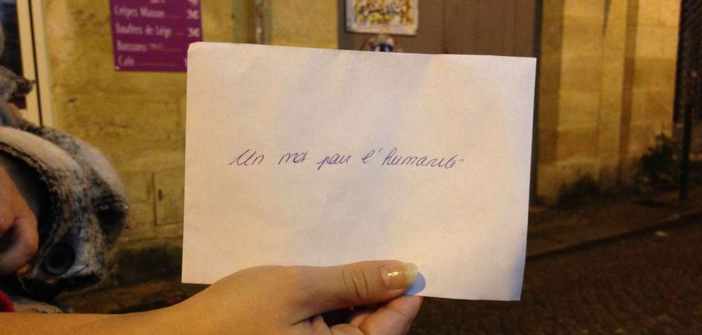Like a sinister metronome, every evening, the director-general of health ticks off the figures of Covid-19 mortality. It is an almost ritualistic event that the public eventually becomes accustomed to. Another daily appointment: around 8 p.m., on their balconies, many French people applaud the healthcare workers, firefighters, paramedics, pharmacists, supermarket cashiers. The list grows every day and now includes garbage collectors, building caretakers, metro bus drivers, delivery people…
Doesn’t this beautiful outpouring of solidarity deserve another tribute, filled with spirituality, each person facing their conscience, to the anonymous dead of Covid? These individuals, who seem reduced to statistical data, don’t they deserve for the nations not to erase them too hastily from collective memory?
With this pandemic that is killing us, we are faced again with the issue of death. Especially since the rising number of victims appears unacceptable to European countries that underplayed or underestimated the risks of the pandemic. In eight weeks, in France, we went from about ten deaths to nearly 27,000 linked to the coronavirus. Yet, “we too often forget,” notes Martin Julier-Costes, a socio-anthropologist in Strasbourg, to eastern weekly La Semaine, “that each year, nearly 600,000 people die in France, about 50,000 per month. It’s a simple observation. Deaths that also have consequences on loved ones, on social relationships, etc. ”
Global public opinion will remain haunted by this macabre accounting. The victims’ loved ones feel as if they died in isolation, forgotten. Death, adds the researcher, “when it is relatively absent from our daily lives as was the case before the epidemic for us Westerners and before the periods of attacks, and it occurs, it always disturbs us. We cannot get used to it because it would go against the definition of a human being. We are mortal. It haunts us, makes us reflect just as it prompts us to act.”
We will never forget those images of an exhausted doctor from the east, in tears in front of a recovery room unable to receive more patients. Other images are more encouraging: those of caregivers applauding the discharge of a survivor patient.
The anonymous dead and all those who are suffering right now in their bodies from Covid-19 deserve better than to feed statistics. They deserve to be more than numbers recorded in intensive care units.
“To honor the dead is to prevent them from dying twice.” This phrase by Elie Wiesel, concerning the victims of the Holocaust, maintains, all proportions kept, its humanism…
Paul Barelli, president of the Club de la Presse 06


